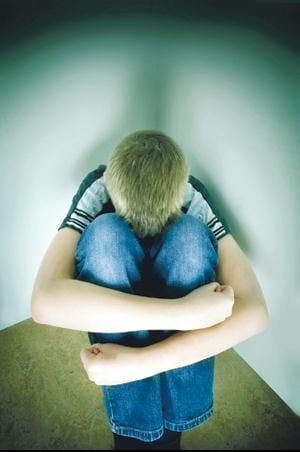Being bullied as a child or teen is hell. I know from experience.
My upbringing involved constant, unannounced moves to new locales. By the ninth grade I had attended 14 different schools in 11 different towns in BC and Alberta and knew firsthand just how dangerous it is to be eternally the new kid.
However, this nomadic existence also ensured that I figured out the rules early on and learned to prepare myself for the inevitable confrontations. I wasn’t a particularly big kid, but I was smart and figured out that making people laugh and having a slightly dangerous quality were excellent ways to keep the bullies at bay.
In fact, there are only a few bullying incidents I recall with any detail.
One encounter happened in the fifth grade while I was living in a BC mining town. It involved a very tall girl — one of those who go through puberty early — who seemed like a high-school student sitting among children. Why this girl, whom I’d previously been kind of friendly with, took such a sudden dislike to me I don’t know.
The campaign started with her whispering insults about me to the other kids and telling terrible lies behind my back. It quickly progressed to open derision of the most hurtful kind. Attempts to speak to her about this brought on nothing but more abuse. Over several months the events escalated — from her kicking me so hard in the ass on the playground while my back was turned that I ended up in the mud, to her throwing my belongings in the garbage (including my only pair of gym shoes) when I wasn’t around. This was fairly often because I started avoiding school as much as possible because this girl made it hell.
What was really frustrating was the fact I couldn’t figure out what to do about it. If it had been a boy, there would’ve been a fight that decided dominance. I didn’t have that option with her. Hitting a girl for any reason was, rightly, a huge taboo.
I finally spoke to my parents about it, and my teacher, separately. Their contempt for my complaint was palpable: no boy worth his salt would be bullied by a girl. All disputed that such a thing could even happen. I was shamed for reporting it.
So the next time we encountered one another in a hallway when no one was around, I told the girl I was tired of her bullying and said she wasn’t going to push me around anymore. She laughed and called me a name that had something to do with my partial native heritage. I punched her in the centre of the chest as hard as I could, knocking the breath out of her as she fell back against the wall.
She never reported the incident and never bullied me again. I wasn’t at all proud of what I’d done, but I was quite sure it was the only recourse I’d had left.
This story’s been on my mind because I read so much about bullying in today’s news — the term itself has been abused.
Bullying is complex. It’s not confined to a particular class, age group or gender. It can be extremely obvious and physical, but it can also be subtle and all but invisible. It can take place between the most unlikely parties, and, in some cases, the co-dependent relationship between victim and bully can be as nuanced as any other social coupling.
However, when rightwing shills in the political arena and the popular media start whinging about “being bullied” by people who don’t accept their hateful words and actions, a problem must be acknowledged.
Bullying, by definition (Merriam-Webster), is “one habitually cruel to others who are weaker.” That seems pretty clear to me. It does not say, “people who don’t accept every stupid thing I say without challenge.” It doesn’t say, “someone who doesn’t like me even though I wish they did.” It doesn’t say, “anyone who does anything that puts me in conflict because I don’t want conflict of any kind.” And it certainly doesn’t say, “people who admonish or correct me because I’m hopelessly bad at a job I represent myself as being able to do.”
While everyone has an obligation to acknowledge and battle bullying among youth, we also have to acknowledge that a society or a world without conflict is not only highly unlikely, but undesirable as well.
“Weaker” is a very subjective term and not necessarily one of permanence. It is possible to become stronger, and we all benefit by doing it.

 Why you can trust Xtra
Why you can trust Xtra


